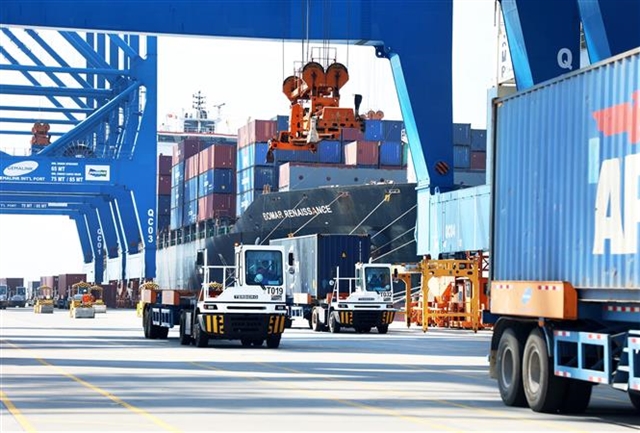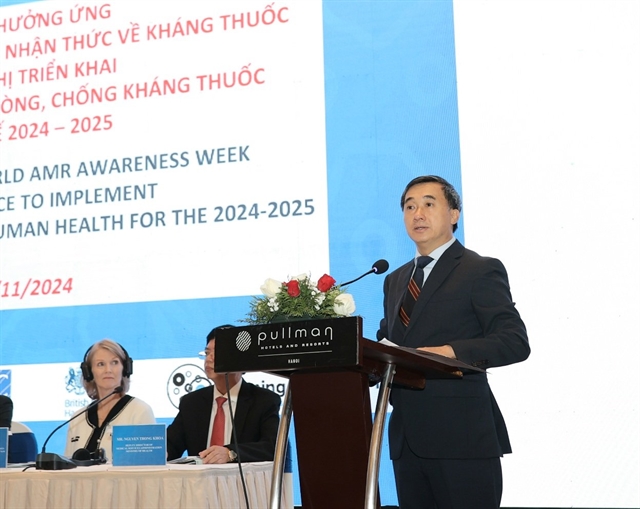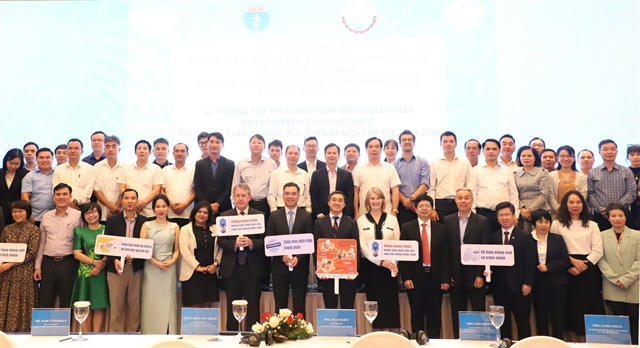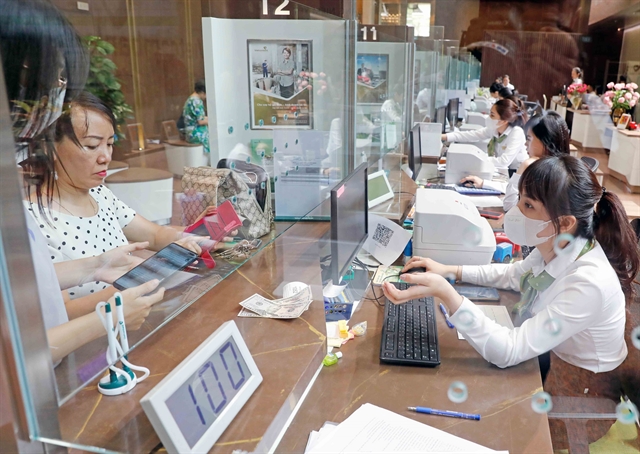 Economy
Economy

 |
| Professor Dr Trần Văn Thuấn, Deputy Minister of Health speaks at the meeting to mark the World Antimicrobial Resistance (AMR) Awareness Week on November 22. — Photo courtesy of the MoH |
HÀ NỘI — Health experts called for more efforts to raise awareness and action against the growing threat of AMR at a meeting to celebrate World Antimicrobial Resistance (AMR) Awareness Week on November 22.
With the theme 'Educate. Advocate. Act Now', the week (November 18-24) was jointly organised by the Ministry of Health (MoH), the World Health Organization (WHO) and international partners in Việt Nam.
Speaking at the meeting, Deputy Minister of Health Professor Dr Trần Văn Thuấn, emphasised that World AMR Awareness Week is a global campaign to promote understanding and action on AMR.
“We call on the entire health sector in all provinces and cities to implement the National Strategy on the Prevention of AMR for the period 2023-2030 and the Action Plan for AMR in Health for the 2024-2025 period to protect current and future generations, preserving valuable antibiotics in Việt Nam and worldwide,” said Thuấn.
AMR occurs when bacteria, viruses, fungi and parasites no longer respond to antimicrobial agents. As a result of drug resistance, antibiotics and other medicines become ineffective and infections become difficult or impossible to treat, increasing the risk of disease spread, severe illness and death.
The health sector suggests people should only take antibiotics and other antimicrobials prescribed by a qualified health professional; always follow health workers’ advice when using antibiotics; never share or use leftover antibiotics; and prevent infections by regularly washing hands, preparing food hygienically, avoiding close contact with sick people, practising safer sex and keeping vaccinations up to date.
In Việt Nam, AMR has become a significant public health concern. According to a recent AMR surveillance report, high rates of antibiotic resistance have been found in common bacteria, particularly in hospitals. Misuse and overuse of antibiotics in health care and agriculture are major drivers of AMR.
 |
| Representatives of the Ministry of Health (MoH), the World Health Organization (WHO) and international partners in Việt Nam at the event. — Photo courtesy of the MoH |
Việt Nam has taken important steps to combat AMR. In 2023, Việt Nam approved the new National Strategy on the Prevention of Antimicrobial Resistance for the period 2023-30, with a vision to 2045. The strategy strengthens coordination among the human health, agriculture and environment, industry and trade sectors including policymakers, healthcare providers, industry, farmers and individuals.
The MoH and the Prime Minister have also approved National Action Plans for the human health and agriculture sectors, outlining clear targets for awareness and education, surveillance and research, infection prevention and control, optimising antimicrobial use and sustainable investments.
At the event, WHO Team Coordinator for Universal Health Coverage and Disease Control, Erin Kenney praised the Government of Việt Nam for its leadership in adopting the National Strategy and Action plan to tackle this complex problem.
“AMR is one of the top health and development threats globally and to Việt Nam, and a priority for WHO’s support to Việt Nam. Now, sectors need to educate, advocate policies and act to strengthen implementation to meet the targets of the National Strategy and Action plan.
“In the health sector, AMR puts many of the gains of modern medicine at risk. It makes infections harder to treat and makes other medical procedures and treatments – such as surgery, caesarean sections and cancer chemotherapy – much riskier.
“AMR is also costly for both health systems and the economy. For example, it creates the need for more expensive and intensive care, affects productivity of patients or their caregivers through prolonged hospital stays and harms agricultural productivity,” Kenney said.— VNS




